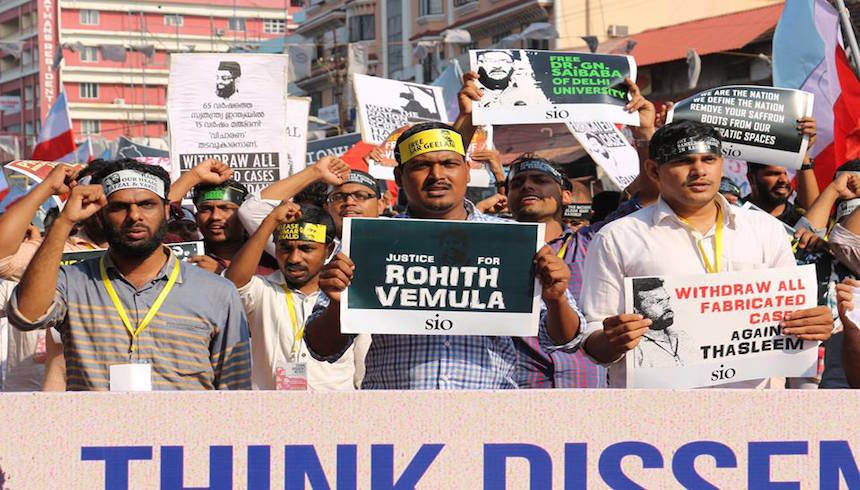Law that protects Scheduled Castes and Scheduled Tribes
“Together we imagine a circle of compassion with no one standing outside of it.” – Peggy O’Neill, S.C.
It was in 2014 that UPA had promulgated Scheduled Castes and Scheduled Tribes (Prevention of Atrocities) Amendment Ordinance on 4th March. However, that was right before Lok Sabha elections. So, when NDA came to power, they referred the Bill to the standing committee, thus lapsing the Ordinance. Congress then blamed the BJP for sending the Bill to standing committee in spite of having support of majority members as RSS felt that the Bill would make way for false cases against members of upper castes.
Following which, Lok Sabha passed the Scheduled Castes and Scheduled Tribes (Prevention of Atrocities) Amendment Bill on August 4th, 2015, which was later passed by the Rajya Sabha on 21st December, 2015. The Bill that is to replace Scheduled Castes and Scheduled Tribes (Prevention of Atrocities) Act, 1989 was given s. However, the Ministry of Social Justice and Empowerment did not notify the Act, as the rules had not been finalized.
However, recently, there was a pother over Rohit Vemula, a Dalit student’s suicide note for which BJP was being held accountable, the details of the incident can be found in one of my earlier posts, here. Due to this, the government decided to bring the new law in force even though the rules are still a work in progress. Therefore, the Act came into force on January 26, 2016.
Six Points you should know about Scheduled Castes and Scheduled Tribes (Prevention of Atrocities) Act, 2015:
1) The Act has added a host of new definitions, victim being one of them defined to mean any individual who falls within the definition of ‘Scheduled Castes’ or ‘Scheduled Tribes’ and who has suffered physical, mental, psychological, emotional or monetary harm or harm to his property as a result of commission of any offense under this Act and includes his relatives, legal guardian and legal heir.
2) The Act adds new categories of actions that can be considered as offences under the Act and amends certain existing acts.
3) Some of the new ones that have been added are:
(i) Garlanding an SC/ST person with footwears.
(ii) Hindering them from casting vote
(iii) Bad mouthing them regarding their caste in public
(iv) Compelling them to do manual scavenging or carry human carcasses.
(v) Forcing inedible or obnoxious substances into their mouth.
(vi) Attempt to promote feelings of ill will against SC/STs.
(vii) Obstructing SC/STs entry into educational or medical institution, place of worship or any other common property.
(viii) Using acts, words or gestures of sexual nature against SC/ST women.
(ix) Wrongfully dispossessing SC/ST from the enjoyment of his land or premises.
(x) Forcibly tonsuring their head, removing moustache or painting their faces.
4) The Act imposes duties on public servants like registering an FIR or complaint, reading out the oral complaint to the SC/ST victim before taking their signature. Public Servant neglecting his duty would be punished with an imprisonment of 6 months to 1 year.
5) The Act establishes Exclusive Special Courts under which Exclusive Special Prosecutors are appointed to try the matter and, enable speedy and expeditious disposal of cases. The court is given the power of taking direct cognizance of case and as far as possible finish the trial in two months from the date of filing of charge sheet.
6) The Act has added ‘Rights of Victim and Witnesses’ Chapter under which it has imposed the duty on the Government to make arrangements for the protection of victims and their dependents. The Chapter protects the right of the victim right from being notified of court proceedings to being allowed to file application to the Special Prosecutor and conduct of fair trial. The trials under this Act shall be video recorded.
Full text of the Act can be found here: http://www.ncsc.nic.in/files/POA_ACT_2016.01.pdf
Picture Courtesy: Wikimedia







